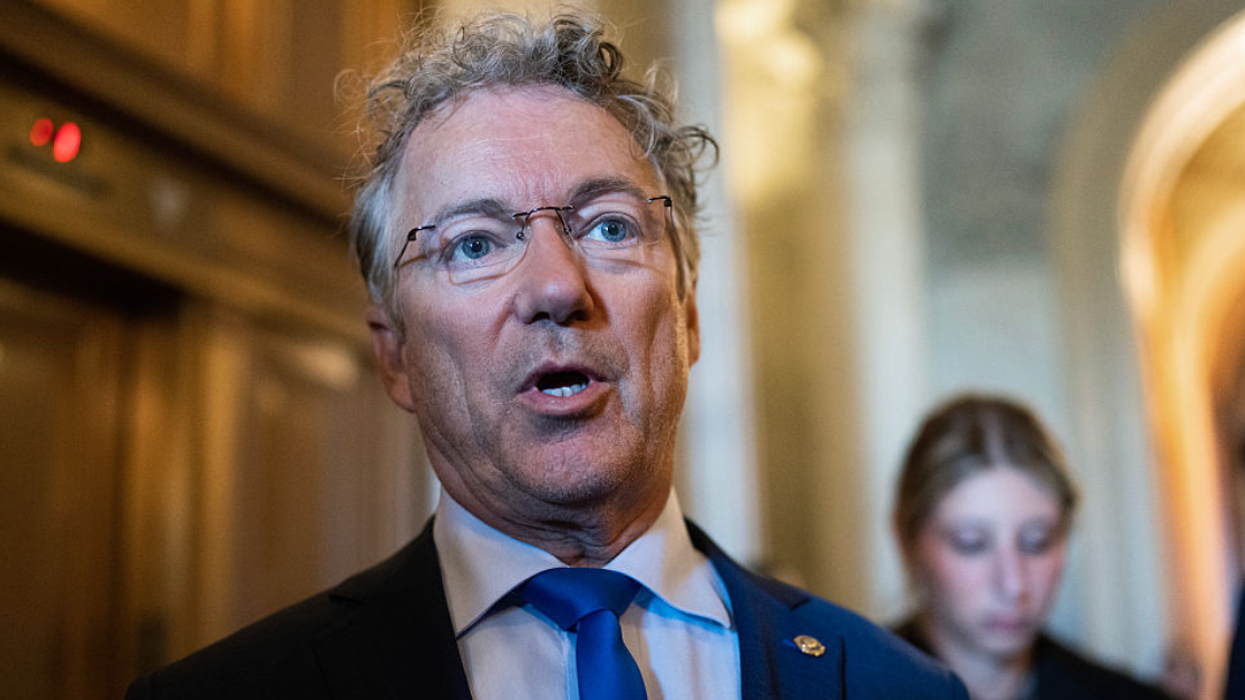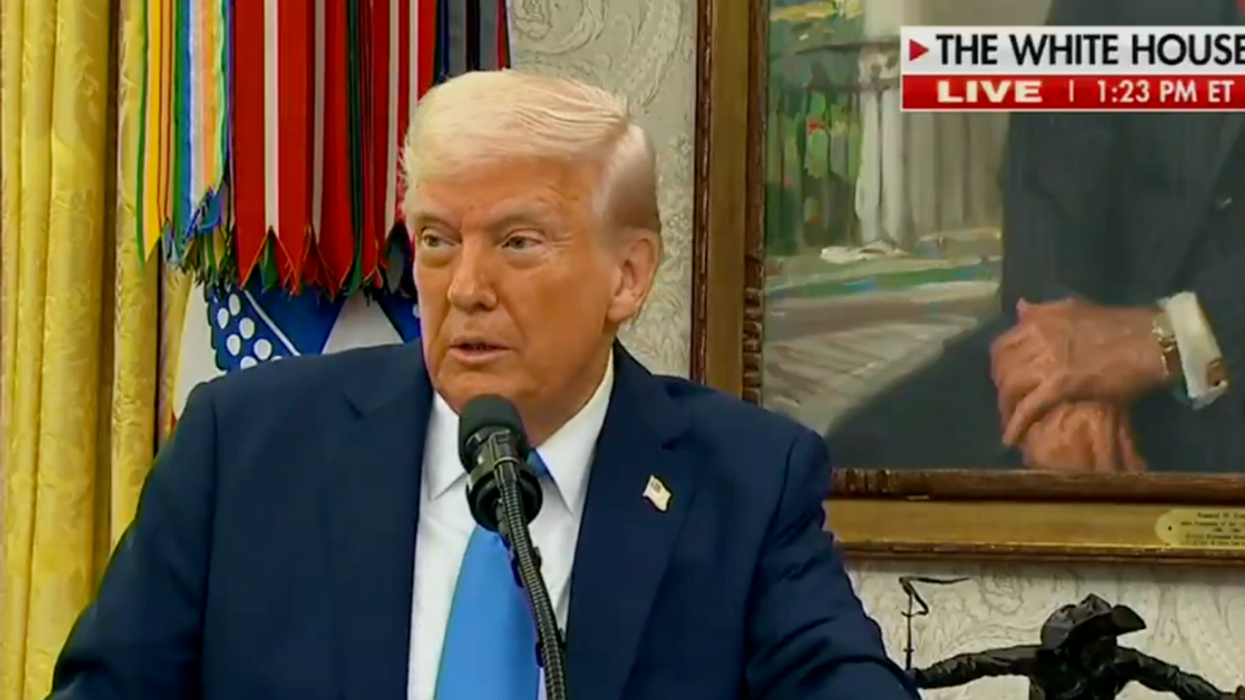Kentucky Republican Rand Paul issued a dire warning to his fellow Republicans amid the widespread controversy surrounding President Donald Trump's tariffs, saying they could hamper the GOP's prospects in future elections and pointing to American history to support his prediction.
Trump, in his tariff announcement on Wednesday, declared April 2 as the day American industry "will be reborn," heralding what he called a "golden age of America." He emphasized that the new tariffs would not only counter foreign tariffs but also address what he described as "nonmonetary" trade barriers, including currency manipulation and "pollution havens."
Among other things, he warned foreign countries that "if you want your tariff rate to be zero, then you build your product right here in America.”
He outlined steep tariff rates, with China set to face a 34 percent tariff, the European Union 20 percent, Japan 24 percent, and India 26 percent. On top of these, he announced a universal baseline tariff of 10 percent, meaning that some countries, like China, could effectively face a 44 percent tariff when combined with existing duties. His move sent the markets tumbling, with the Dow down 1600 points on Thursday.
Paul was among four GOP senators who sided with Democrats in voting against Trump's tariffs on Canada on Wednesday, making him one of the few Republicans in Congress opposing the policy.
He said:
"Tariffs have also led to political decimation."
"When [former President William] McKinley most famously put tariffs on in 1890, they lost 50 percent of their seats in the national election. When [Smoot-Hawley] put on their tariff in the early 1930s, we lost the House and the Senate for 60 years. So they're not only bad economically, they're bad politically."
You can hear his remarks in the video below.
History does indeed offer the GOP valuable lessons to consider.
In 1890, then-Representative William McKinley, a Republican, championed new tariffs to protect manufacturing interests. However, later that year, Republicans suffered significant losses in the House, losing 93 seats to Democrats and the Populist Party.
Similarly, after the Smoot-Hawley Tariff Act of 1930—widely believed by economists to have worsened the Great Depression—Republicans struggled in elections for decades. Between 1930 and 1995, they controlled the House for only two nonconsecutive terms and held a Senate majority for about 12 years across six terms.
Ahead of the 2026 midterms, Democrats were already optimistic, citing historical precedent that the president’s party typically loses seats during midterms. Their confidence grew after strong performances in two Florida special elections and a Wisconsin Supreme Court race victory this week.
And now people are amplifying Paul's warning, stressing and knowing full well that the GOP is in for rocky times ahead.
Alongside Paul, Republican Senators Susan Collins of Maine, Mitch McConnell of Kentucky, and Lisa Murkowski of Alaska also voted to rescind the national declaration Trump asserted under the International Emergency Economic Powers Act to justify his tariffs on Canada.
Trump lashed out at these lawmakers, accusing them of “playing with the lives of the American people” and siding with “Radical Left Democrats and Drug Cartels.” He further condemned their votes, saying they revealed “the weakness of certain Republicans” and urged supporters to “contact these Senators and get them to FINALLY adhere to Republican Values and Ideals.”

















 @theviplist/TikTok
@theviplist/TikTok @theviplist/TikTok
@theviplist/TikTok @theviplist/TikTok
@theviplist/TikTok @theviplist/TikTok
@theviplist/TikTok @padmalakshmi/TikTok
@padmalakshmi/TikTok @padmalakshmi/TikTok
@padmalakshmi/TikTok @padmalakshmi/TikTok
@padmalakshmi/TikTok @padmalakshmi/TikTok
@padmalakshmi/TikTok @padmalakshmi/TikTok
@padmalakshmi/TikTok @padmalakshmi/TikTok
@padmalakshmi/TikTok